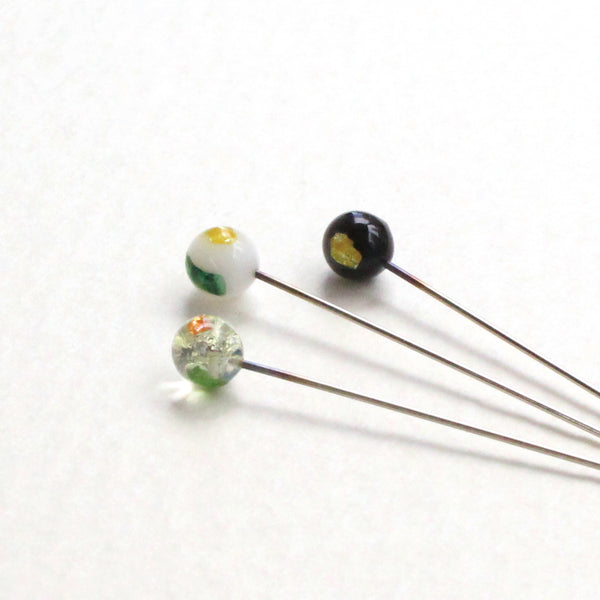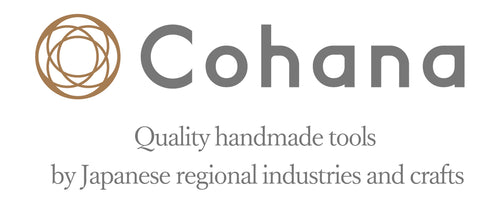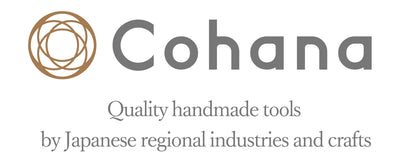Masu Pincushion with Kokura Textile and Shippo Glass Sewing Pins
A Masu-box Pincushion with Kokura Textile and Three Unique Pins Crafted in the Shippo Method.
Story
Masu boxes were was originally used to measure rice, and later came into use holding sake glasses. This fragrant Japanese cypress masu box encases a pincushion made of Kokura textile, a cotton fabric produced in the Northern Kyushu region since the early Edo period.
Kokura textile is known for its three-dimensional stripes with a rhythmic color pattern created by the use of many warp threads. Its production once ceased during World War II. However, after several decades, a weaver Noriko Tsuiki revived Kokura textile into a thriving industry creating stylish-but-traditional cloth, and named her Kokura textile brand "Kokura Shima Shima". The brand is highly acclaimed for its simple and versatile textile designs that fit into modern lifestyles.
The glass heads of these sturdy pins were developed by Nail Salon Ai-rish and Kato Shippo Works to capture the beauty of traditional Aichi Shippo ware. Shippo is a type of cloisonne ware, or lacquered metalwork, and its name derives from the "seven treasures" of gold, silver, pearl, agate, crystal, coral, and lapis lazuli. Uniquely crafted "Shippo flakes" are incorporated into the glass head of the sewing pins, bringing an elevated touch to your craft.
Three Sewing Pins
The beauty of Shippo: cloisonne enamel is expressed in a small glass ball.

Producing Regions
Aichi, Fukuoka, Gifu
Producer
Shippo|Nail Salon Ai-rish/Aichi
Not only is she active as a manicurist at nail salons, but also as an instructor both in Japan and abroad. Through the world's first "traditional craft nail art," she conveys the appeal of Japanese traditional crafts.

Shippo|Kato Shippo Works/Aichi
The Owari Shippo kiln has been handing down traditional techniques since 1947. Using their skills and experience, they continue to search for and create new "Shippo: cloisonne enamel ware" from a workshop.

Kokura Textiles|Kokura Shima Shima/Fukuoka
Kokura-ori, which was once ceased to exist in the early Showa period during the war, was restored in 1984 and revitalized as a modern fabric. Kokura-ori is characterized by its durable and beautiful vertical stripes. While inheriting the tradition, they are also working on the possibility of wider widths that are not possible with hand-woven fabrics, and expanding the world.

Masu Wooden Cups|Ohashi Ryoki Ltd./Gifu
In Ogaki City, Gifu Prefecture, where about 80% of the nation's masu (measuring cups) are produced, the company was founded in 1950 as a manufacturer specializing in the production of Masu. Since then, the company has been dedicated to Masu, striving to pass on its technology and culture, and to develop new ways of using Masu, hoping that it will be used by future generations.

Product Size
All measurements are for reference. Please note in advance that the actual dimensions of the product may slightly vary.
[Sewing Pin]
| Length | 35mm |
| Glass Bead Diameter | 4mm |
| Pin Thickness | 0.5mm |
[Masu]
| Width | 46mm |
| Height | 29mm |
| Depth | 46mm |
Package Size
| Width | 68mm |
| Height | 94mm |
| Deoth | 62mm |
Materials
Sewing pins: Silver, Shippo glaze, Glass, Nickel plating, Steel
Masu Pincushion: Wood ( Japanese cypress ), Fabric: Cotton, Padding: Polyester, Tag: Genuine leather
Handling Precautions
- This product is for use only for pins & needles. Please refrain from using this product, as well as the included sewing needles, for any purpose other than the intended use.
- The needle tip is sharp, so please be careful not to lose or when handling.
- Wipe off sweat and grease after use to prevent discoloration and rusting.
- The glass tops are handmade, so there are individual differences in size and pattern.
- The glass top of the sewing pin may come off if you pull too strong.
- Due to the characteristics of the fabric, using a thick needle may leave holes on the fabric.
- Please be careful not to let the needle get stuck inside the pincushion.
- Due to the use of natural wood for the base, there are individual differences in color and grain.
- Storage in high temperature and humidity may cause the wooden base to crack or deform.
- Sticky tree tar may appear from the base. It can be removed by wiping it off with alcohol.
- The tag is made of genuine leather and therefore may stretch or shrink a little. Also wetting with water or sweat may cause color fading or stains.
- Keep out of reach of infants.





















